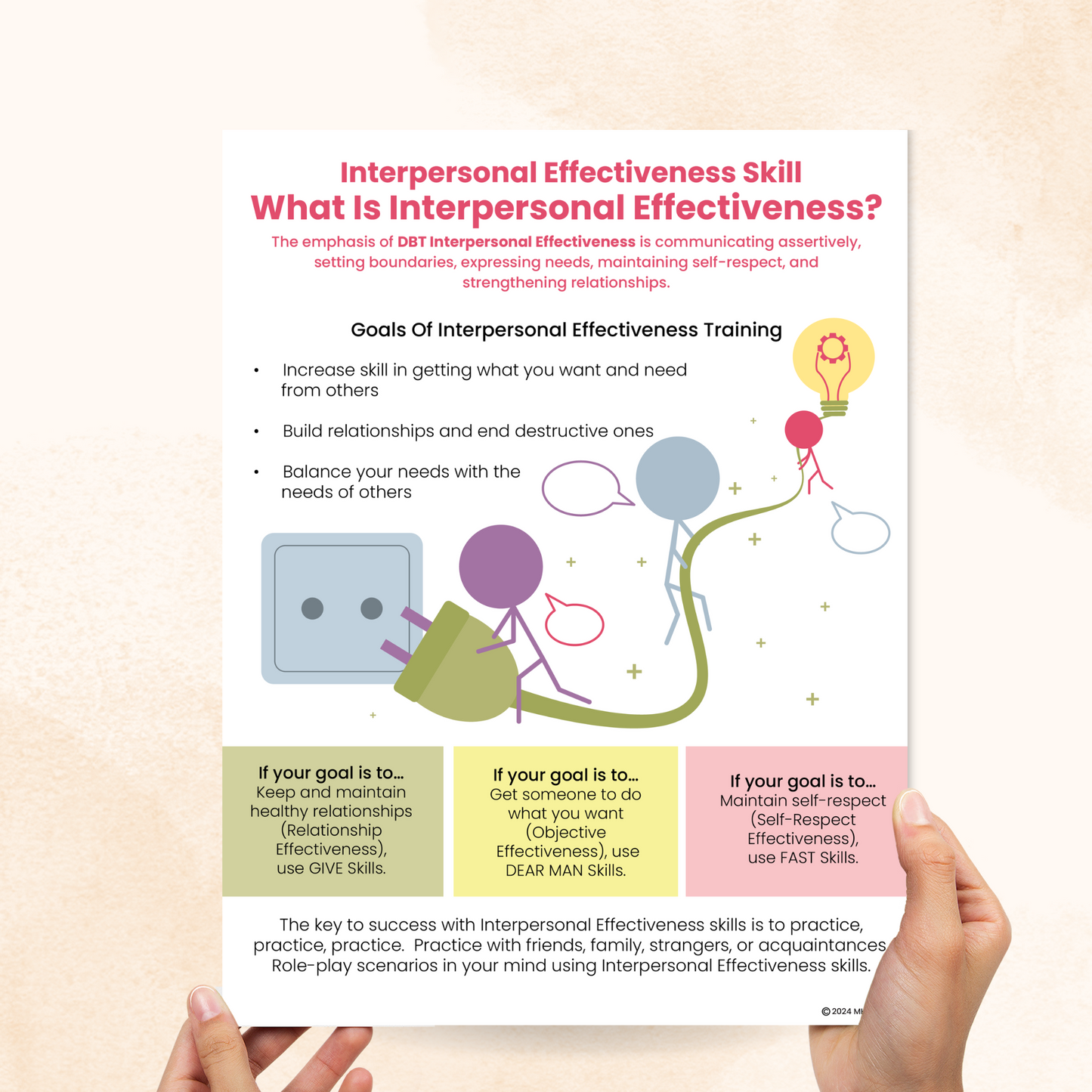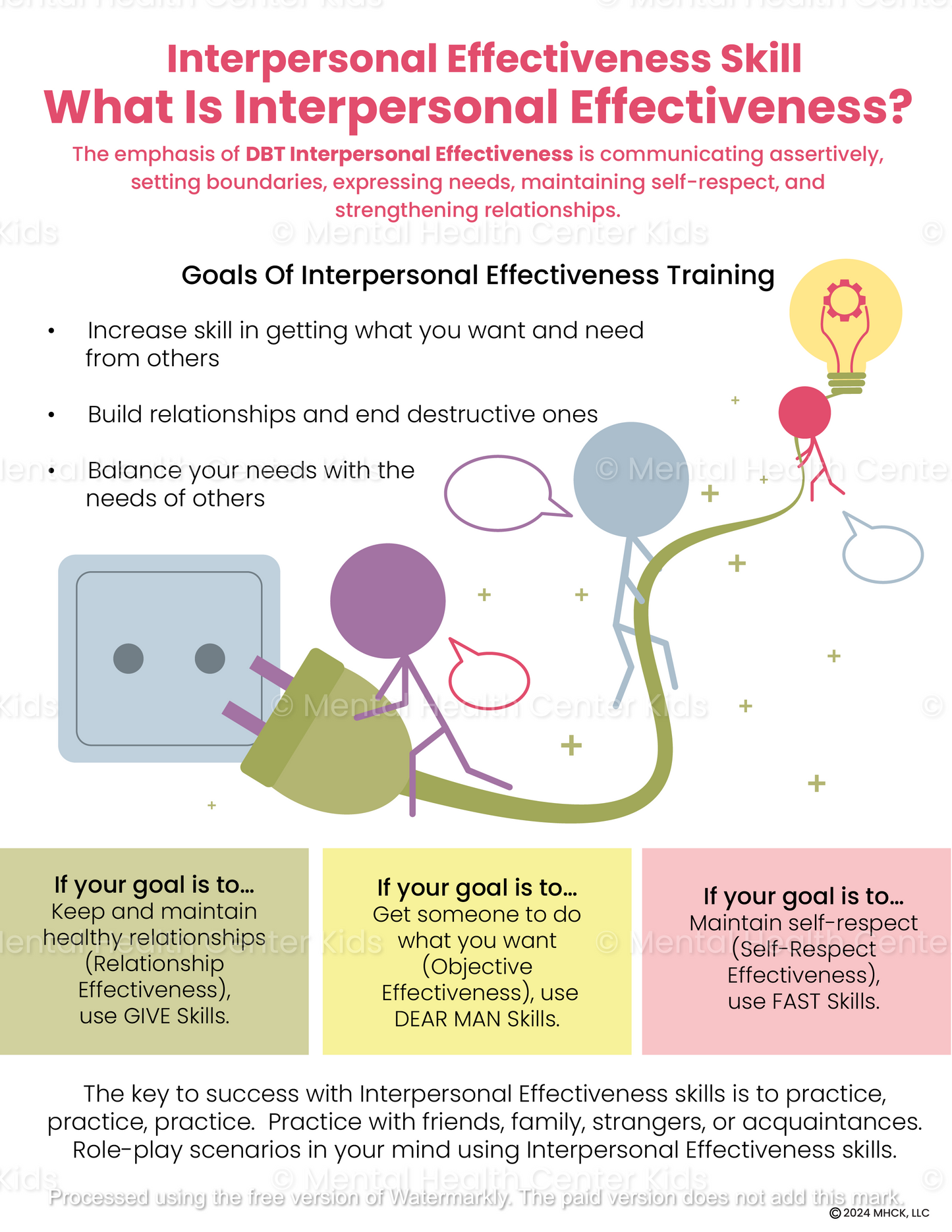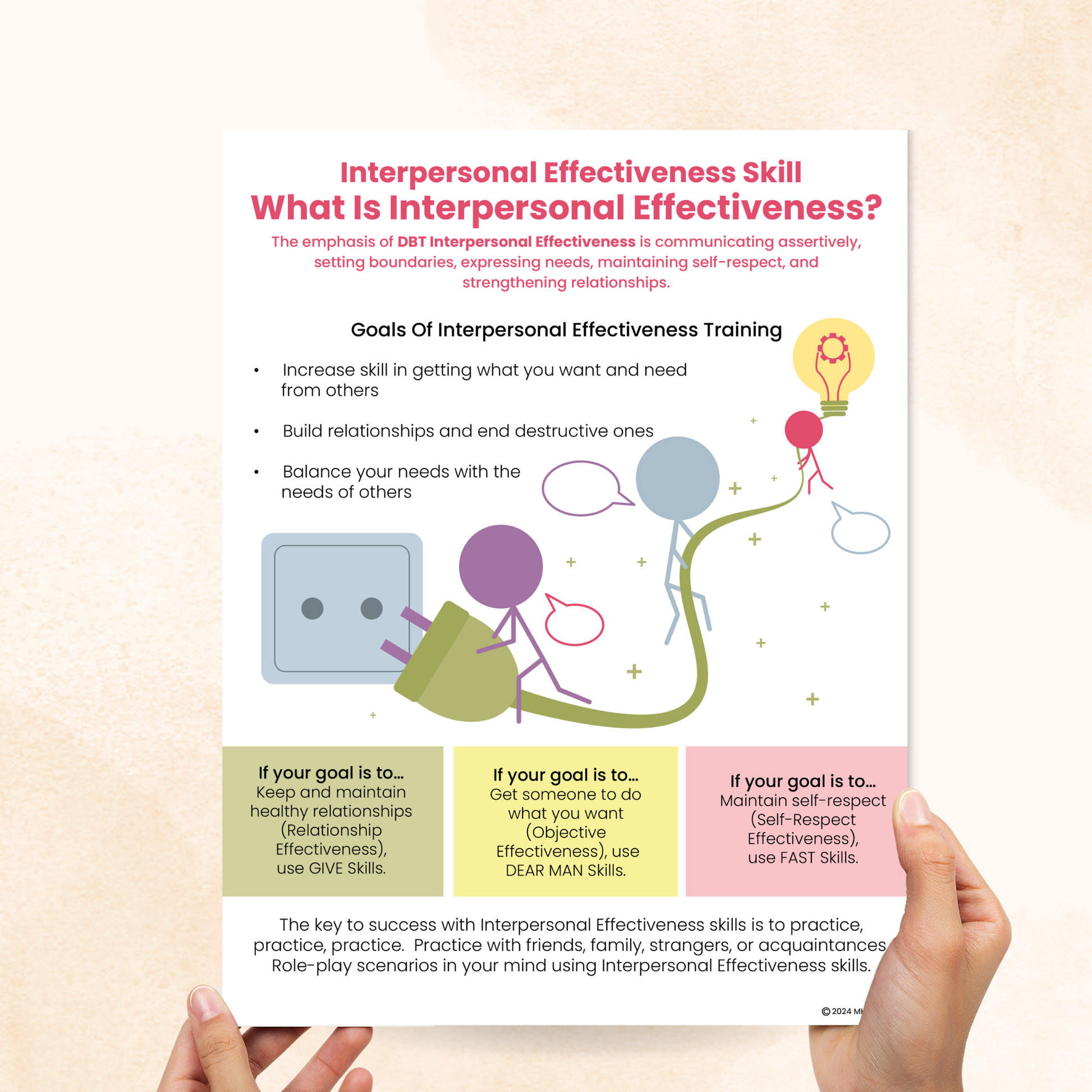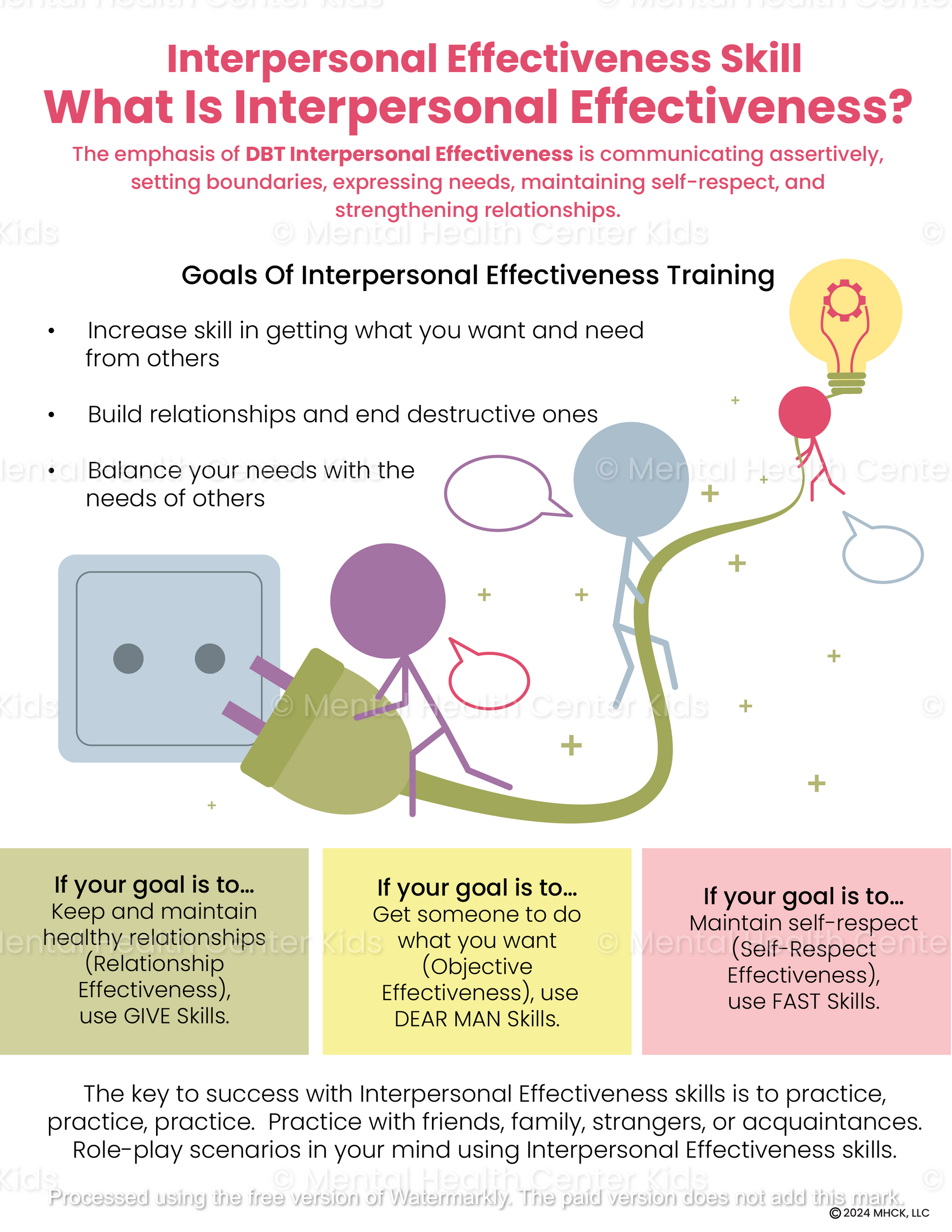What Is Interpersonal Effectiveness In DBT? (PDF)


Interpersonal effectiveness is a DBT skill that focuses on three main goals — relationship effectiveness, objective effectiveness, and self-respect effectiveness. This includes learning to communicate assertively, set boundaries, express needs, maintain self-respect, and strengthen relationships.
The What Is Interpersonal Effectiveness In DBT handout explains what interpersonal effectiveness entails, its goals, and skills clients can use to accomplish each goal. For example, if “self-respect” is their goal, they need to use FAST skills, which stands for Fairness, Apologies, Sticking to values, and Truthfulness.
Learning about DBT interpersonal effectiveness skills can help kids and teens work toward improving their relationships. As a caring adult, clarify some concepts on the handout that your child finds difficult to understand. When asking them to practice these skills, make sure to provide a safe space where they feel comfortable.
Our DBT Interpersonal Effectiveness Skills handout is a helpful add-on for a detailed, 1-page overview of several interpersonal effectiveness skills.
*This item is an instant digital download. A link to download your files will be emailed to you once payment is confirmed.
Want more resources like this? Check out our full catalog of DBT worksheets and handouts.
References:
- De La Fuente Anuncibay, R., González-Barbadillo, Á., Sánchez, D. O., & Pizarro-Ruiz, J. P. (2020b). Mindfulness and Empathy: Mediating factors and gender differences in a Spanish sample. Frontiers in Psychology, 11. https://doi.org/10.3389/fpsyg.2020.01915
- Mandal, E., & Lip, M. (2022). Mindfulness, relationship quality, and conflict resolution strategies used by partners in close relationships. Current Issues in Personality Psychology, 10(2), 135–146. https://doi.org/10.5114/cipp.2021.111981
- Musil, C. M., Wallace, M., Jeanblanc, A., Toly, V. B., Zauszniewski, J. A., & Burant, C. J. (2020b). Theoretical and operational consideration of mindfulness, resilience, and resourcefulness. Western Journal of Nursing Research, 43(3), 210–218. https://doi.org/10.1177/0193945920956684
- Instant digital download
- File: PDF
- Size: 8.5" x 11"



